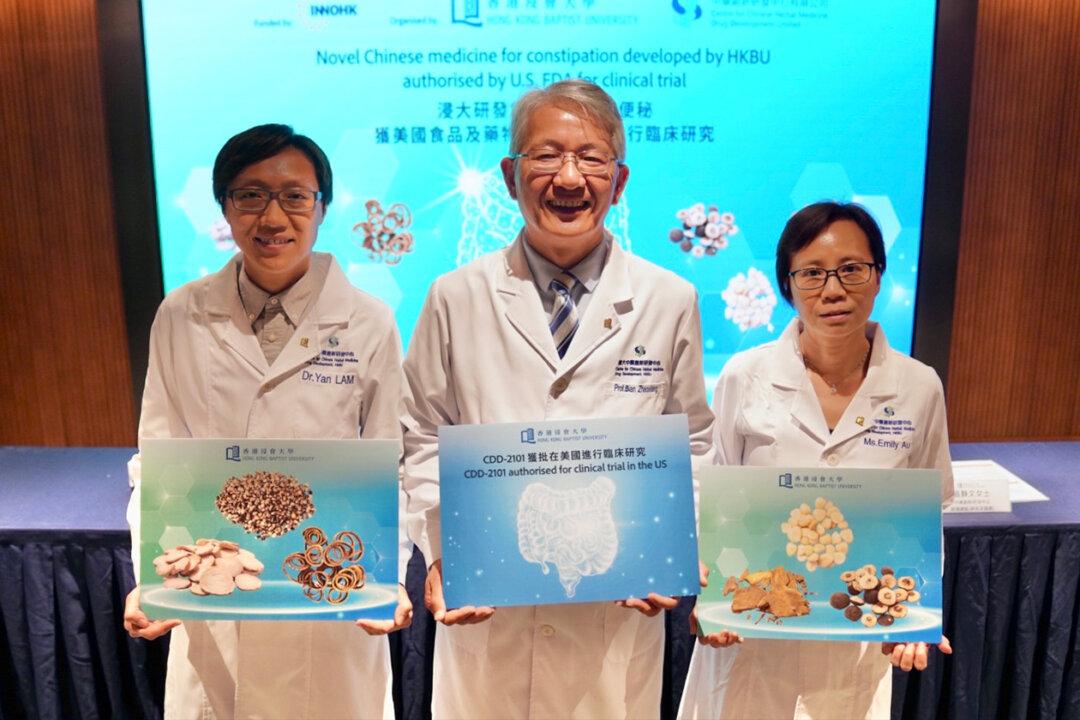Chronic constipation is a common gastrointestinal condition affecting approximately 14 percent of the global population. The Centre for Chinese Herbal Medicine Drug Development (CDD) of Hong Kong Baptist University (HKBU) announced on July 25 a significant breakthrough in developing innovative traditional Chinese medicine for treating chronic constipation. The Investigational New Drug Application submitted to the U.S. Food and Drug Administration (FDA) in April 2023 has been approved, paving the way for the commencement of phase one clinical trials this year. This marks the first time a traditional Chinese medicine developed in Hong Kong has received approval for clinical trials in the U.S.
Professor Bian Zhaoxiang, Associate Vice-President (Chinese Medicine Development), Director of the Clinical Division of the School of Chinese Medicine, and Director of the CDD at HKBU, stated that based on previous pilot clinical studies and foundational research on the traditional Chinese herbal formulation, “MaZiRenWan,“ they have developed the new drug ”CDD-2101“ targeted for the international market. The primary ingredients of ”CDD-2101” consist of six Chinese herbs: hemp seed, rhubarb, officinal magnolia bark, bitter apricot seed, bran stir-fried immature orange fruit, and white peony root.




